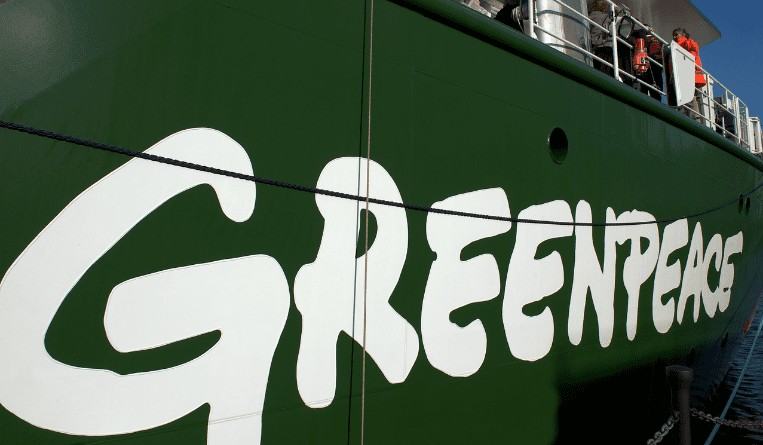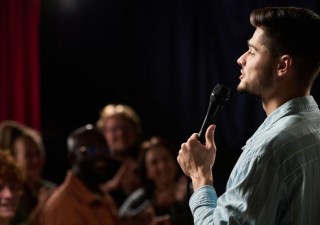Australian court rules on trademark, copyright case involving Greenpeace and local power company
23 June 2021

The court ruled largely in favor of Greenpeace Australia Pacific in a case of alleged trademark and copyright infringement involving a power company providing electricity to almost one-third of households in Australia.
AGL Energy Ltd. took the environmental organization to federal court over the latter’s use of its logo for a May 2021 campaign against AGL’s use of coal-burning power stations.
Calling AGL “Australia’s biggest climate polluter” and accusing it of “greenwashing,” the campaign uses the tagline “Australia’s Greatest Liability” in its website, social media posts, posters, banners and other paraphernalia. Also appearing in these campaign materials is an altered version of the AGL logo.
Though AGL claims it advocates renewable energy, the company is actually Australia’s leading source of greenhouse gases, accounting for over eight percent of total emissions. In 2020, only 10 percent of AGL’s power supply came from renewable energy sources. The power company plans to continue using coal until 2048.
Greenpeace argued that its use of AGL’s logo falls under “fair dealing” in accordance with Australia’s copyright law since it is used for purposes of criticism, satire and parody. Neither is it being used for trade activities, Greenpeace said.

But, according to an article in apnews.com, AGL lawyer Megan Evetts said there was a “clear intention to harm the brand.”
“AGL’s argument was essentially that Greenpeace’s conduct was not for parodic or satirical purpose but was rather for the purpose of disseminating information and pressuring AGL to announce a new direction for the company. It also argued that Greenpeace’s use of the logo was not, in any event, fair because Greenpeace deliberately set out to make AGL’s logo ‘toxic,’” said Timothy Creek, principal lawyer at Davies Collison Cave Law in Melbourne.
In the end, Justice Stephen Burley ruled against AGL’s trademark claim and a significant part of its copyright claim.
According to Justice Burley, the “Australia’s Greatest Liability” tagline placed alongside the altered AGL logo in the Greenpeace campaign materials constitute works of parody or satire.
“The courts have previously emphasized that there may be more than one purpose for use of a work and the mere fact that one of those purposes was not for parody or satire does not prevent a user from otherwise relying on the defence,” said Creek. “In this case, Justice Burley found that one of Greenpeace’s purposes for using the AGL logo was to attract the attention of viewers and to draw their attention to an object of criticism or ridicule - in this case, what Greenpeace considered to be AGL’s ‘greenwashing’ behaviour - so even if it had the further purpose that AGL contended, that would not necessarily disentitle Greenpeace from relying on the defence.”
“As Justice Burley pointed out, importantly, copyright protects the owner’s interest in the artistic work; it does not provide a mechanism for protecting a copyright owner’s reputation. Indeed, one of the express objectives of the fair dealing defence for the purpose of parody or satire is to provide a degree of freedom of speech by permitting a level of scorn or ridicule to emphasize and promote criticism of the subject work or its owner’s or creator’s conduct. In view of this objective, it must be the case that the Copyright Act permits a level of discourse that might have the effect of reducing a copyright owner’s or creator’s reputation in the minds of the consumer,” Creek added.
However, placards held by students and some social media posts were found to have violated copyright law as they only carried the logo and the phrase “Australia’s biggest climate polluter.” The tagline did not appear in these materials. Justice Burley said there was nothing satirical about them.
With regard to the ruling on AGL’s trademark claim, Creek said: “As his Honour concluded, it seems clear from Greenpeace’s use of the AGL mark in context that the AGL mark was being used to identify that brand and AGL as the subject of criticism, rather than Greenpeace promoting any goods or services by reference to the mark.”
How will the case impact Australia’s IP scene?
“This is an important decision in Australia as it provides further useful guidance as to what type of conduct will fall within the ‘parody or satire’ fair dealing exception under the Copyright Act, particularly as this exception has received little judicial consideration within Australia. The decision also confirms that, to fall within Section 41A of the Copyright Act, there can be more than one purpose for using a work and that using a work for a purpose that falls outside the defence where another purpose falls within the defence does not negate the application of the defence,” Creek said.
Espie Angelica A. de Leon






